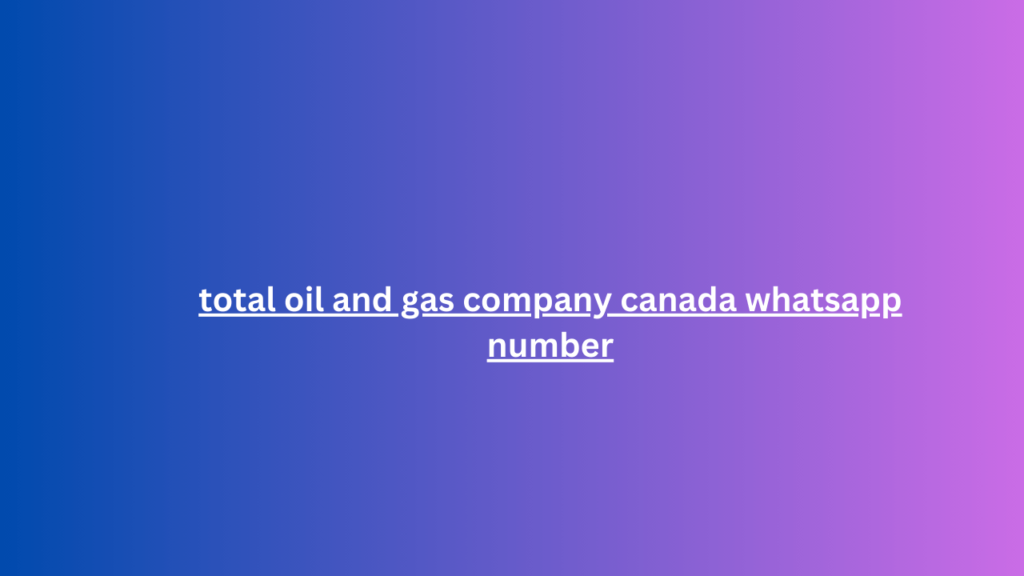The concept of continuous improvement
Posted: Sun Dec 22, 2024 3:26 pm
The above techniques are, so to speak, the quintessence of applying Kaizen philosophy and their introduction alone should yield great results; employees are involved in improving the company and initiatives will emerge from the bottom up rather than being driven by management.
It is interesting to know which areas of a company's operations can be most easily improved by Kaizen. It would probably be difficult to make a merger using the small steps method, while it total oil and gas company canada whatsapp number works very well to get rid of waste, improve operations and make workplaces more efficient. Let's look at some selected concepts related to Kaizen.
Muda means waste in Japanese and the term has a particularly deep meaning, because within the Kaizen philosophy we use it to describe everything that does not create value for customers. Many aspects of a company's operations generate costs without adding value to the final product or service. Traditionally, there were seven areas where these "muda" could occur:
Transporte: There are several examples under this term. It will be a waste of time and fuel to transport materials from a warehouse that is too far away. In a poorly designed office, employees may unnecessarily carry documents to a cupboard in another room. In addition, it is easy for products to be damaged during transport that could have been avoided.

Storage: Materials that are not in use at the moment generate costs such as paying for warehouse space, electricity bills and the like. Obviously, a certain level of stock is necessary to avoid unnecessary production interruptions, but this can be reduced by using methods such as "just in time", which involves perfect synchronization with suppliers.
Unnecessary movement: Unnecessary movements by employees can be caused, for example, by a mess in the office, when an important tool or document has to be found in different rooms. One way to avoid this is the 5S technique, which we will explain later.
Waiting: Any time employees are idle represents a loss for the company. The inability to complete a job may be due to a lack of tools or materials, for example, and the fear of such a situation often leads to the aforementioned excess stock. In the office, there may be a need to wait for a message or approval from a superior, and in this case it is worth improving communication in the company and fighting against possible bureaucracy.
It is interesting to know which areas of a company's operations can be most easily improved by Kaizen. It would probably be difficult to make a merger using the small steps method, while it total oil and gas company canada whatsapp number works very well to get rid of waste, improve operations and make workplaces more efficient. Let's look at some selected concepts related to Kaizen.
Muda means waste in Japanese and the term has a particularly deep meaning, because within the Kaizen philosophy we use it to describe everything that does not create value for customers. Many aspects of a company's operations generate costs without adding value to the final product or service. Traditionally, there were seven areas where these "muda" could occur:
Transporte: There are several examples under this term. It will be a waste of time and fuel to transport materials from a warehouse that is too far away. In a poorly designed office, employees may unnecessarily carry documents to a cupboard in another room. In addition, it is easy for products to be damaged during transport that could have been avoided.

Storage: Materials that are not in use at the moment generate costs such as paying for warehouse space, electricity bills and the like. Obviously, a certain level of stock is necessary to avoid unnecessary production interruptions, but this can be reduced by using methods such as "just in time", which involves perfect synchronization with suppliers.
Unnecessary movement: Unnecessary movements by employees can be caused, for example, by a mess in the office, when an important tool or document has to be found in different rooms. One way to avoid this is the 5S technique, which we will explain later.
Waiting: Any time employees are idle represents a loss for the company. The inability to complete a job may be due to a lack of tools or materials, for example, and the fear of such a situation often leads to the aforementioned excess stock. In the office, there may be a need to wait for a message or approval from a superior, and in this case it is worth improving communication in the company and fighting against possible bureaucracy.